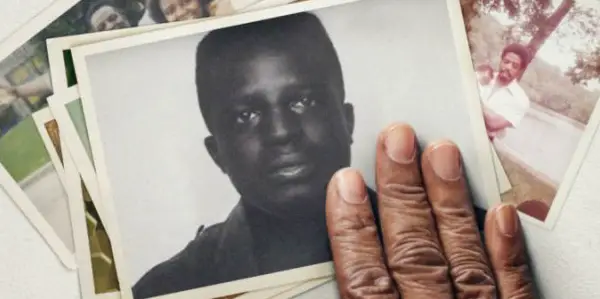At some point in all our short lives, we learn that the world isn’t quite what it seems, that justice—no matter how certain it looks from the outside—isn’t always served. Unfortunately for Yance Ford, it took the death of his beloved brother to truly face this reality. Ford explores this experience in his new Netflix documentary Strong Island.
Set in Central Islip, New York, Strong Island tells the story of William Ford, Jr., a young black man gunned down by a white auto repair shop employee in April 1992. On paper, the Suffolk County Police Department filed the case as a homicide. But in person, at least according to the Ford family, local police treated perpetrator Mark Reilly as if he hadn’t committed any crime at all. Instead, they put all their investigative efforts into framing William as an entirely different person than his loved ones knew. In fact, the case never even went to trial.
The Truth of the Matter
Strong Island aims to get to the truth of who William was and all that he had the potential to become before his life was cut short. In sharing family photos and memories, Yance Ford presents William with a level of intimacy that only a sibling can achieve. Expert storytelling and film structure allow the audience to develop a clear view of William in his totality: he was kind, heroic, flawed, human. All told, the documentary paints a more sympathetic picture of William than authorities did in the months following his death.

But why had the authorities worked so hard to drive William’s image in a different direction? Turns out the answer to that question isn’t so easily uncovered. As the Ford family’s past unfolds before our eyes, we’re also asked to follow Yance in a quest for hard facts and painful truths from the very investigators who worked on William’s case. Does he get the answers he needs? Yes. Are they the ones he wanted? Not necessarily.
All this, plus the juxtaposition between past and present make for a raw, uninhibited look at the guilt and anguish an untimely death can leave behind.
A Family Facing Loss And Trauma
The film itself is beautifully executed, balancing the documented facts of the case with family anecdotes. Firsthand accounts from William’s family and friends are what stay with you after the film is over; they strike an emotional chord and make you realize that unexpected loss can leave long-lasting scars. We see this loss most profoundly through the eyes of Barbara Dunmore Ford, William’s mother.
Barbara breathes life into the photos we see displayed throughout the film. From her recollections, we get a full three-dimensional view of what each member of her family brought to the table. In William, she saw a gentle giant whose kindness and potential for greatness were unlimited.
We also get a necessary glimpse into the family’s past. Over the course of the film, Barbara reveals the entirety of her family’s history, from the racial segregation of her childhood in the south to raising children destined for excellence in the north. In this particular family story, she’s the bridge between generations that faced racial trauma.
In essence, Strong Island is one family’s tragic account of what it’s like to be black in America and, more specifically, what it’s like to be black on Long Island. But more than that, Strong Island allows the Ford family the opportunity to share their side of the story—the one that law enforcement, attorneys, and a grand jury seemed completely unwilling to hear. This film gives them the freedom and breathing room to show William, their family and their experiences in detail and in truth. It’s a powerful reclamation of their history and the ultimate declaration of love for a life lost so many years ago.
Strong Island: Conclusion
Strong Island is so supreme in its presentation that it immediately grabs your attention and never lets go. You simply can’t stop watching, listening, empathizing. From its striking title to its incredible cinematography and art direction, Strong Island transports you to the very location where these chilling events took place. And if you’ve been paying attention, you walk away from the film wanting to know and do more. You walk away feeling some of the Fords’ anger and sadness. You walk away with more questions than answers.
Having grown up on Long Island, the title of this documentary immediately stood out to me. Take a drive down the Long Island Expressway for any length of time and you’re bound to see a “Strong Island” bumper sticker somewhere along the way. Ride the Long Island Rail Road from Central Islip to Penn Station and you’re sure to spot a t-shirt displaying this phrase. To the millions of tenacious and determined people Long Island has churned out, “Strong Island” has come to mean pride, grit, and hard work. It means that we’re more than vineyards, lighthouses, Grey Gardens and the Hamptons.
But Yance Ford’s Strong Island asks us to understand this phrase differently. How might a predominately white community wield its power to dismiss a black life? What strength, pride, conviction and determination might it take a black family to overcome this level of loss and injustice?
What questions were you left with after watching Strong Island? Are those questions as relevant now as they were when this case took place?
Strong Island is now streaming on Netflix.
Does content like this matter to you?
Become a Member and support film journalism. Unlock access to all of Film Inquiry`s great articles. Join a community of like-minded readers who are passionate about cinema - get access to our private members Network, give back to independent filmmakers, and more.